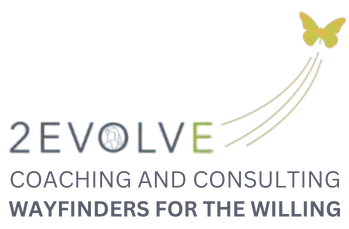Unlock Your Full Potential: How Life Coaching Can Transform Your Everyday Life
1. What is Life Coaching? Understanding the Basics
Life coaching is a synergistic relationship between an accredited life coach and a client designed to tap into your full personal and professional potential. Unlike in therapy, where the focus is often on emotional healing, life coaching focuses on setting and achieving goals. A life coach helps you clarify your goals, identify the obstacles holding you back, and then come up with strategies for overcoming each obstacle. In facilitating this process, life coaches provide support, accountability, and encouragement.

2. Personal Growth: Key Areas Where Life Coaching Makes an Impact
Life coaching can dramatically affect personal growth areas such as self-confidence, relationships, work-life balance, and personal fulfillment. Coaches work to uncover what is most important to their clients and help them navigate the path to success. Whether it’s improving communication skills, increasing productivity at work, or enhancing problem-solving abilities, life coaching helps individuals develop the skills needed to excel in various facets of their lives.
- Self-Confidence and Self-Esteem: One of the most significant areas where life coaching makes a marked impact is in building self-confidence and self-esteem. Coaches employ techniques that challenge self-limiting beliefs and encourage a positive self-image, allowing individuals to step out of their comfort zones and take on new challenges confidently.
- Relationship Building: Life coaching also significantly affects relationships. Coaches help clients improve communication skills, express their needs and feelings more effectively, and cultivate healthier interpersonal dynamics. This guidance is invaluable for both personal and professional relationships, leading to more fulfilling interactions and stronger connections.
- Work-Life Balance: Life coaches play a pivotal role in helping individuals find equilibrium between their professional obligations and personal enjoyment. By collaborating with clients to prioritize key aspects of life, optimize time management, and establish firm personal boundaries, coaches can significantly diminish stress levels. This strategic approach not only boosts overall well-being but also enriches life satisfaction, ensuring clients lead more balanced and harmonious lives.
- Goal Setting and Achievement: Life coaches are adept at steering clients through the intricacies of defining and pursuing clear, achievable goals. They provide essential tools and steadfast support to navigate this journey. The process involves distilling broad life ambitions into smaller, actionable steps and crafting plans to surmount potential hurdles. This methodical approach empowers clients to realize their aspirations systematically, enhancing their ability to succeed in various endeavors.
- Emotional Intelligence: In the realm of life coaching, enhancing emotional intelligence is a fundamental aspect. This development involves learning to accurately identify and understand one's own emotions and those of others. Coaches help clients apply emotional insights to tasks, regulate their emotional responses to reduce stress, and improve communication skills. Additionally, fostering emotional intelligence aids in empathizing with others, overcoming personal challenges, and resolving conflicts effectively, all of which are crucial for personal and professional growth.
3. Success Stories: Real-Life Transformations Through Life Coaching
Throughout the world, many have experienced significant transformations with the support of a life coach. From executives facing leadership challenges to individuals seeking personal fulfillment, the stories are both profound and inspiring. For example, a young professional who struggled with confidence found through coaching the courage to apply for and secure a dream job, proving how targeted personal development can yield substantial real-world benefits.
4. Getting Started with a Life Coach: Steps to Unlock Your Potential
Beginning your journey with a life coach involves a few key steps. First, identify what you hope to achieve through coaching. Next, choose a coach whose experience and style align with your goals. Most coaches offer a preliminary session to ensure a good fit. Then, prepare to work collaboratively with your coach on setting realistic, achievable goals. Remember, the effectiveness of life coaching is greatly enhanced by your own commitment and openness to the process.
Step 1: Define Your Goals
Before reaching out to a life coach, take some time to reflect on what you hope to achieve. Are you looking to advance in your career, improve personal relationships, or develop better health habits? Understanding your goals will help you and your coach to focus your sessions and create a tailored plan that addresses your specific needs.
Step 2: Find the Right Coach
Choosing a coach who aligns with your personality and goals is crucial. Look for certified coaches with experience in the areas you're interested in. Many coaches offer a variety of specialties, from career development to personal wellness. Consider their qualifications, coaching style, and reviews from previous clients. Most coaches offer initial consultations, which can be a great opportunity to see if there’s a good rapport and alignment of methodologies.
Step 3: Initial Consultation
During your first meeting, you'll discuss your goals and challenges. This session is also the time to ask questions about the coaching process. It’s a mutual evaluation to ensure that both you and the coach feel confident about working together. This step is about building trust and setting the stage for open communication.
Step 4: Set Up a Coaching Plan
If you decide to proceed, your coach will help you develop a personalized coaching plan. This plan will outline the key areas of focus, set milestones, and define strategies for overcoming obstacles. The plan is flexible and can evolve based on your progress and feedback.
Step 5: Engage in the Coaching Process
Regular sessions with your coach will involve discussing progress, tackling setbacks, and refining strategies as needed. The frequency of these sessions can vary based on your preference and the specifics of your coaching plan. Consistency and honesty are key to making substantial progress.
Step 6: Evaluate and Adapt
As you progress, continuously evaluate the outcomes with your coach. This evaluation isn't just about tracking goals but also ensuring that the coaching relationship remains effective and responsive to your needs. Adjustments may be made to the coaching plan to better align with your evolving objectives or new challenges that emerge.
Step 7: Achieving and Maintaining Success
Ultimately, the goal of life coaching is not just to achieve specific outcomes but also to equip you with the skills and mindsets for sustained self-improvement. Throughout your journey, you’ll learn to apply new skills independently and make lasting changes that align with your vision for a fulfilling life.
By following these steps, you can unlock your potential and enjoy the transformative benefits of working with a life coach. This process is not just about reaching immediate goals but also about cultivating a mindset geared towards continual growth and success.
Looking for a life coach?
Wondering if we service your area?
Austin, Dallas, Houston, San Diego, San Francisco, and all of Utah.


Ready to work with 2Evolve Coaching and Consulting?
Let's connect! We’re here to help.
Send us a message and we’ll be in touch.
Or give us a call today at (801) 850-2974



